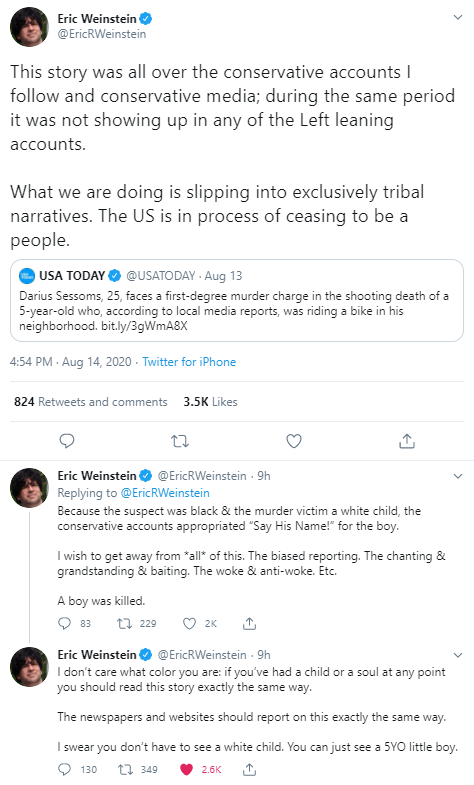Divided We Are Falling
Eric Weinstein's Tweet isn't really about the "race" of this perpetrator and the "race" of this victim. Tomorrow there will be another incident in which the "races" will be reversed and then that news coverage (and lack thereof) will also be reversed. THAT is what is tragic. We are now divided so sharply that we refuse to see the humanity in members of outgroups.
To satisfy our selectively-blinded morality and to sell commercials, our respective teams of "news" media now look only for facts that fit predetermined narratives, ignoring everything that doesn't fit. In other words, our "news" stories are pre-written nuance free, with a few blanks left open for tonight's names and tonight's minor details. And since there is so much going on, they will easily find the stories they seek, the kinds of stories that are guaranteed to make us nod, then clench our fists, then vomit our anger at the opposing team on social media.
We and our teams of "news" media have trained each other so very well that these insane battle lines now seem inevitable. So much so that if Jesus, The Dalai Lama, Nelson Mandela and Martin Luther King all suddenly appeared and earnestly reminded us to love both our neighbors and our enemies, it would would unite us, if only for a moment. We would tell them all to go fuck off.

